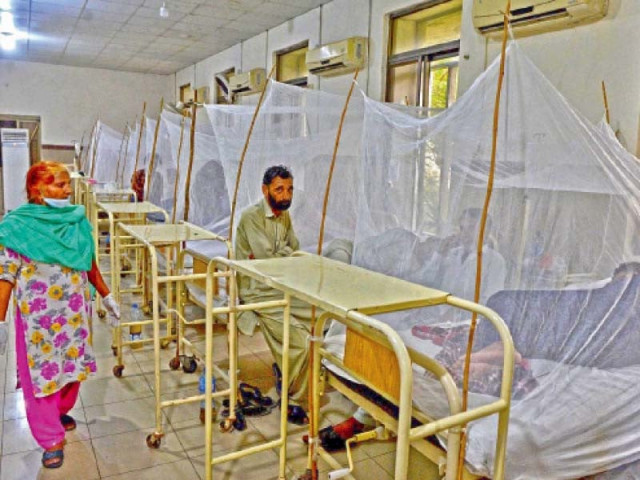K-P warns against naegleria, cholera outbreak
Over 150 cases of naegleria reported since 2008 including three in 2023

The Khyber-Pakhtunkhwa (K-P) Health Department has issued a formal advisory to all hospitals, their administrations, and district health officers to prevent the spread of diseases such as naegleria fowleri (brain-eating amoeba), cholera, diarrhoea and measles, which can turn into epidemics in the summer season.
The guidelines issued to medical training institutes (MTIs), hospitals, and District Headquarters (DHQs) state that naegleria fowleri has been deadly in Pakistan since 2008, with 150 cases reported so far. Three cases were reported last year.
The advisory further states that it is essential to take preventive measures and enhance surveillance. The virus is commonly found in warm water lakes, waterfalls, rivers and soil. The infection can also be transmitted through contaminated water and nasal secretions, and can easily spread during swimming.
The incubation period of the disease is two to 15 days, and symptoms include headache, fever, stiff neck, and neurological symptoms. Unfortunately, its diagnosis is often delayed, and the disease has a 97 per cent mortality rate.
The Health Department has urged the public to take precautions and seek immediate medical attention if symptoms persist.
The advisory also warns against letting water enter the nose while swimming or diving, and stresses the importance of cleaning water tanks, swimming pools and drains.
It also emphasizes the need for prompt diagnosis and treatment of suspected cases, and designates authorities for case management and surveillance.
Regarding measles, the advisory notes that the high transmission season for the disease is from October to May, and that unvaccinated children under the age of 15 are at risk of infection.
Regarding waterborne diarrhoea and cholera, the advisory warns that 1.3 to 1.4 million people are affected by them every year, resulting in 21,000 to 143,000 deaths.
Their causes include poor hygiene, inadequate nutrition, lack of access to clean drinking water, poor sanitation, and contaminated hands. It stresses the importance of clinical presentation, timely laboratory testing, and case management for diagnosis and treatment, and also includes guidelines for patients seeking medical attention as well as separate protocols for diagnosing and managing both ailments.



1724319076-0/Untitled-design-(5)1724319076-0-208x130.webp)















COMMENTS
Comments are moderated and generally will be posted if they are on-topic and not abusive.
For more information, please see our Comments FAQ